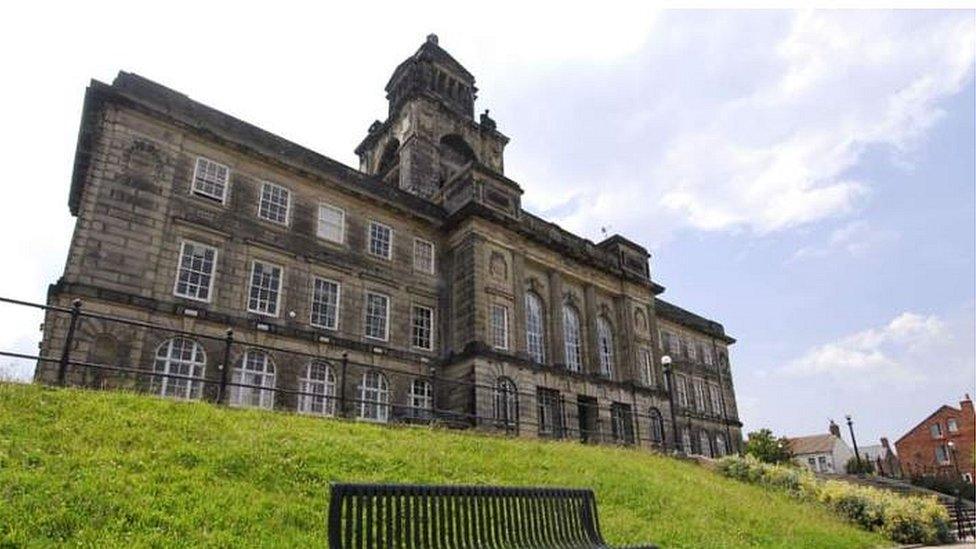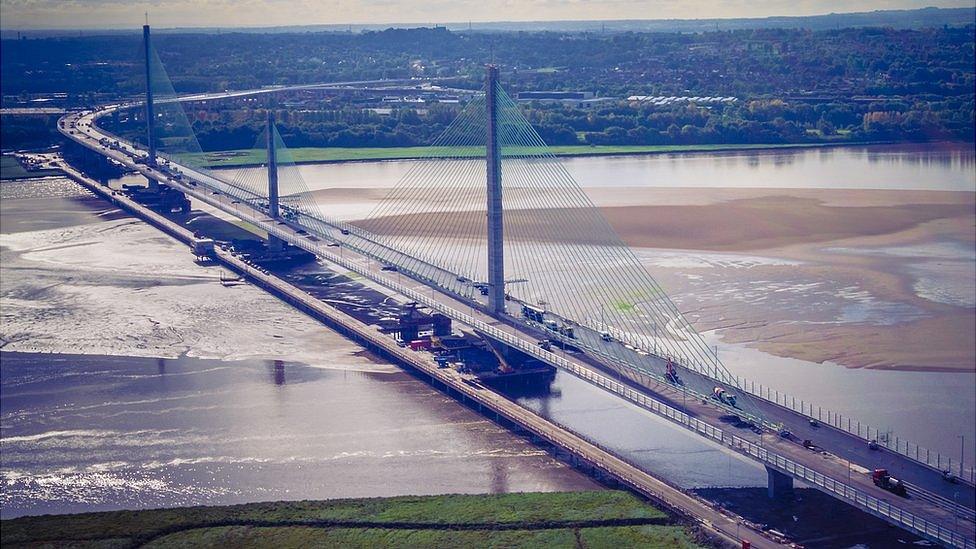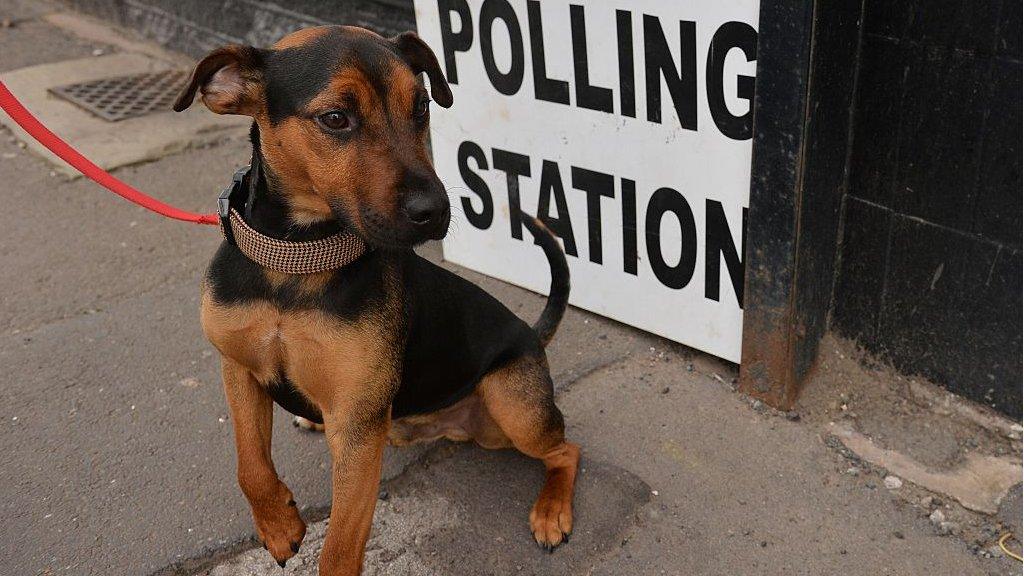Merseyside voters ready to take sides in a turf war
- Published

Protesters across Merseyside have spoken out against building on green belt land
Merseyside's local elections are a turf war - and I mean actual turf.
The green stuff, the fields, parks and even bits of unloved scrub-land will be the area's local election battlegrounds on 2 May.
Many green spaces are likely to be developed for housing as the Labour-run councils try to find space for enough new homes to meet demand, but in Wirral and St Helens, the plans have proved particularly contentious, as green belt sites could be used.
The issue could cost Labour seats across the region. The Local Plans, long term forecasts for how many houses need to built and where, have opened up swathes of land for development.
There have been noisy protests outside council meetings in Wirral and St Helens, costly legal battles in Liverpool and a huge U-turn in Knowsley when plans to sell 17 parks were scrapped after public outcry.
Labour insists it is being forced to earmark green space for housing due to government targets, but opposition parties claim Labour simply doesn't care about what might be lost.
Watching Wirral
On Merseyside and in the Halton corner of Cheshire - which is, confusingly, also part of the Liverpool City Region - it is Labour who hold sway, mostly with significant majorities.
The party and main rivals the Conservatives are fielding candidates in every ward.
The Tories are the leading opposition group on Wirral Council and have a small group of councillors in Sefton, St Helens and two in Halton.
Interestingly, the Greens are fielding a higher number of candidates than the Liberal Democrats in total across the area.
This is possibly due to the green space campaigns, but also many voters have not forgiven the Lib Dems for going in to coalition with the Conservatives in national government.

Planning rows and a debt collection company could see Labour lose control of Wirral
Wirral is the one to watch though, as if Labour lose just two of their 35 seats, they lose their majority.
The council will then be in no overall control, as it was for a decade between 2002 and 2012.
Wirral Labour's been increasingly split in the last couple of years, with claims that an influx of "hard left" members have pushed out long standing councillors.
Four Labour councillors quit the party recently and set up their own independent group and council leader Phil Davies is not seeking re-election, leaving Labour campaigning without being able to tell voters who will lead them after 2 May.
Opposition parties have kept up pressure on the green belt, rallied against a luxury golf resort and claimed victory after the council scrapped an unpopular contract with a litter enforcement agency.
Moving away from Labour?
Across the Mersey, Labour has a huge majority in Liverpool under the leadership of the city's mayor Joe Anderson.
However, doubts about his future and the unpopularity of some of the developments he has been linked with mean some Labour candidates are publicly disagreeing - on the doorstep and on social media - with some of the decisions his administration has made.
The Lib Dems, who ran the council until 2010, are hoping to make gains this year, but it is a steep mountain to climb, as they have eight seats to Labour's 75.

Mersey Gateway tolls are an election issue in Halton
Crossing the Mersey was the thing that many thought could have hit Labour hard in Halton, but last year the party held all its seats and its huge majority there, despite speculation that the unpopularity of the Mersey Gateway tolls could have influenced the vote.
Pressure remains on Halton Council to at least introduce a fairer enforcement system, if not scrap the tolls all together, something which opposition parties are demanding.
And in Knowlsey, things may be about to change.
The last time these seats were up for election, Labour was the only party represented there, but now there are three Liberal Democrats, a Green and an independent.
Will voters decide the grass is greener away from Labour?
Turnout is predicted to be at an all-time low, according to Jon Tonge from the University of Liverpool, who believes Brexit fatigue could mean voters stay well away from the polling booths and maybe head to their local park instead.
- Published9 April 2019
